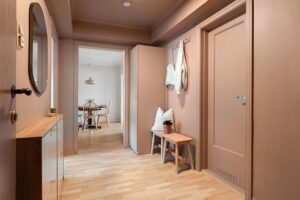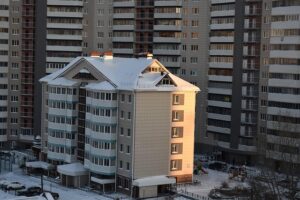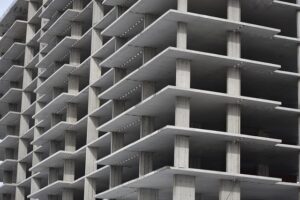Navigating EC Eligibility and Affordability in Singapore: A Comprehensive Guide
1. Eligibility: Before applying for an Executive Condominium (EC) in Singapore, first-time applicants must not own or have applied for a flat from the Housing & Development Board (HDB). Second-timer applicants must have fulfilled the minimum occupation per…….

1. Eligibility: Before applying for an Executive Condominium (EC) in Singapore, first-time applicants must not own or have applied for a flat from the Housing & Development Board (HDB). Second-timer applicants must have fulfilled the minimum occupation period (MOP) of their previous flat.
2. Application Process: Applicants should research the average price of ECs in Singapore to find a property that fits their budget, considering factors like location and unit type. They may apply directly with HDB for new units or through developers for resale units.
3. Minimum Occupation Period (MOP): The MOP is crucial as it affects the resale value of ECs. After completing the MOP, ECs can be sold to a broader market, potentially increasing their value.
4. CPF Utilization: Singapore's Central Provident Fund (CPF) can finance up to 80% of an EC's purchase price, making ECs more affordable for middle-income families. The average price of ECs impacts the amount of CPF funding available.
5. Affordability and Amenities: ECs offer a cost-effective alternative to private condominiums with the added benefits of subsidies, modern amenities, and strategic locations. They are designed to cater to families' needs with communal facilities like gyms and pools, ensuring high-quality living within an accessible price range.
6. Market Trends: The average price of ECs in Singapore reflects the demand for these properties and continues to rise, indicating their growing popularity as a housing option in Singapore.
Navigating the property market in Singapore can be a complex journey, particularly for those considering an Executive Condominium (EC) as their home. This article serves as a comprehensive guide to understanding the EC landscape, eligibility criteria, and the financial implications of owning one. We will explore the average price of ECs in Singapore, key factors influencing eligibility, and the application process for first-time and second-time applicants. From assessing your financial capacity to understanding the Minimum Occupation Period (MOP), this guide covers it all. Additionally, we delve into the role of CPF, the benefits of living in an EC, the HDB grant scheme, and the resale market dynamics. Whether you’re a potential first-time buyer or looking to upgrade, this article provides valuable insights to help you make informed decisions in Singapore’s vibrant property scene.
- Understanding the EC (Executive Condominium) Landscape in Singapore
- Key Factors Determining EC Eligibility
- Average Price of ECs in Singapore: Market Overview
- Step-by-Step Guide to Checking EC Eligibility
- Assessing Your Financial Capacity for an EC Purchase
- The Application Process: How to Apply for an EC as a First-Timer or Second-Timer
- EC MOP (Minimum Occupation Period) and Its Implications for Resale
- The Role of CPF (Central Provident Fund) in EC Eligibility and Affordability
- Exploring the Benefits of Living in an Executive Condominium
Understanding the EC (Executive Condominium) Landscape in Singapore

In Singapore, the Executive Condominium (EC) landscape offers a unique blend of public and private housing tailored for middle-income families. These residential units are designed to provide homeowners with the benefits of both types of accommodation, including smaller lease periods compared to Housing & Development Board (HDB) flats, yet with the facilities and amenities comparable to those found in private condominiums. The EC landscape is dynamic, reflecting the changing needs and preferences of residents over time. Prospective buyers interested in the average price of ECs in Singapore will find that prices can vary significantly based on factors such as location, development size, and age of the unit. As of recent years, the average price has seen a steady rise, aligning with the broader real estate trends in Singapore. Understanding this market is crucial for first-time buyers and investors alike, as ECs represent an important step up from HDB flats and offer a more luxurious living experience with facilities such as swimming pools, gyms, and playgrounds. The pricing of ECs also reflects their status as a bridge between public and private housing, providing affordable options for those looking to upgrade without the prohibitive costs associated with private properties. Keeping abreast of the average price of ECs in Singapore is essential for anyone looking to navigate this segment of the property market, as it offers valuable insights into the affordability and value proposition these homes present.
Key Factors Determining EC Eligibility

When assessing one’s eligibility for an Executive Condominium (EC) in Singapore, several key factors come into play. Prospective buyers must consider the Average Price Of Ec In Singapore as it reflects market trends and sets a benchmark for affordability. The pricing is influenced by the location of the EC, its size, the age of the development, as well as the prevailing demand and supply dynamics within the property market. Additionally, eligibility criteria are defined by the Housing & Development Board (HDB), which stipulates that applicants must meet income ceilings and occupancy requirements to qualify for an EC. Furthermore, applicants must be first-time flat owners or must have previously owned a resale flat. This ensures that ECs are reserved for younger families rather than investors. Another crucial aspect is the Minimum Occupation Period (MOP) rule, which requires applicants to have disposed of their previous flat for at least five years before applying for an EC. These factors, combined with the Average Price Of Ec In Singapore, form a comprehensive framework that determines an individual’s eligibility for purchasing an Executive Condominium, making it a significant decision in one’s property ownership journey. It is imperative to stay updated on these criteria as they can change over time and may impact one’s ability to purchase an EC.
Average Price of ECs in Singapore: Market Overview

When considering the purchase of an Executive Condominium (EC) in Singapore, understanding the average price is crucial for potential buyers. The EC market has seen a steady growth in prices over the years, reflecting the demand for such residential options that offer a middle-ground between public and private housing. Prospective buyers interested in the average price of ECs in Singapore should take note that these figures can fluctuate based on factors like location, development stage, and market conditions. As of recent data, prices have been trending upwards, with new launches often setting benchmarks for the market. For instance, the average price per square foot (psf) for resale ECs has been observed to range between SGD 800 to SGD 1,000, while new EC launches might command a premium over this range. It’s important to track these trends as they can influence the affordability and investment potential of ECs. Additionally, government grants such as the CPF Housing Grant (CHG) for eligible applicants can further offset the costs, making ECs an attractive option for middle-income families. Keeping abreast of the average price of ECs in Singapore requires regular monitoring of real estate market reports and announcements from the relevant authorities, ensuring that buyers have a clear understanding of the investment they are considering.
Step-by-Step Guide to Checking EC Eligibility

To ascertain your eligibility for a Public Housing flat in Singapore under the Executive Condominium (EC) scheme, you can follow a structured guide to navigate this process efficiently. The first step is to determine the Average Price Of EC In Singapore as a benchmark to assess your financial readiness. This price serves as a guide to understand what you might expect to pay for an EC unit and is crucial in evaluating if you fall within the income ceilings set by the Housing & Development Board (HDB). You can access this information through the resale price data available on the HDB’s official website or by consulting recent transactions of EC units.
Once you have an understanding of the Average Price Of Ec In Singapore, the next step involves checking your income and assessing if it aligns with the latest income ceilings for EC applicants. These ceilings are regularly updated to reflect changes in the housing market and economic conditions. Applicants must earn a monthly household income that does not exceed the prescribed ceiling. You can check your eligibility by using the ‘Eligibility Assessment’ tool provided on the HDB’s myHDBPage portal, which will require you to input your personal particulars and income details for an assessment. This online tool streamlines the process, providing immediate feedback on your application’s viability. Subsequently, should you meet the eligibility criteria, you may proceed with the application process for an EC unit, taking a significant step towards owning your first home in Singapore.
Assessing Your Financial Capacity for an EC Purchase

When considering the purchase of an Executive Condominium (EC) in Singapore, assessing your financial capacity is paramount. Prospective buyers should first evaluate their current financial situation to determine if they can comfortably manage the average price of an EC, which has been on an upward trend. As of recent years, the average price for an EC has seen a rise, reflecting the growing demand and limited supply in the market. To ascertain your eligibility, you must consider your income ceiling, which is subject to change based on the policies set by the Housing & Development Board (HDB). This income ceiling helps determine if your monthly income falls within the bracket that allows for EC purchase under the Public Private Housing Grant (PPHG), or if you qualify for other forms of housing grants.
Moreover, potential buyers must take into account other financial commitments and responsibilities they may have, ensuring that their monthly expenses and existing loans are manageable alongside an EC’s mortgage repayment. The Total Debt Servicing Ratio (TDSR) framework and the Mortgage Servicing Ratio (MSR) are tools introduced by the Monetary Authority of Singapore to assist with this assessment. By using these ratios, you can calculate the maximum amount of your monthly income that can be allocated towards servicing all your outstanding debt and mortgage repayments respectively. This prudent financial planning is essential to avoid overcommitment and ensure a sustainable lifestyle post-purchase.
The Application Process: How to Apply for an EC as a First-Timer or Second-Timer

Navigating the application process for an Executive Condominium (EC) in Singapore is a structured journey whether you’re applying as a first-timer or a second-timer. As a first-timer, you must ensure that you, your spouse, all co-applicants, and joint owners have not previously taken flat ownership or a new HDB flat from HDB. For those who have previously applied for an EC and are now applying as second-timers, they must wait out the minimum occupation period (MOP) of their current or last flat before they can apply again.
To initiate your application, you should first familiarize yourself with the average price of EC in Singapore to set a realistic budget. The pricing can vary based on location, development stage, and unit type. Once you have a clear idea of the market rate, you can proceed to select an EC based on your preferences and financial capacity. The application process officially begins with the submission of an application for selection of site form to HDB if you’re intending to buy an EC from the open market. If you’re buying from a developer, the application will be handled through them. Ensure all eligibility criteria are met before making an application, including but not limited to income ceilings and the absence of any outstanding housing loans. Upon successful selection, follow through with the necessary documentation and payments, adhering strictly to the stipulated timelines. Throughout the process, keep abreast of the market trends for EC prices to make informed decisions that align with your long-term housing goals.
EC MOP (Minimum Occupation Period) and Its Implications for Resale

When considering the resale value of an Executive Condominium (EC) in Singapore, understanding the Minimum Occupation Period (MOP) is crucial for potential buyers and investors alike. The MOP is a stipulation set by the Singapore government whereby EC unit owners must occupy the unit for at least five years before they can sell it on the open market as a resale unit. This period is significant as it determines the eligibility of the unit for resale to Singapore citizens, PRs, or other eligible entities. After satisfying the MOP, units can be sold to both Singaporeans and Permanent Residents, thereby broadening the potential buyer pool and potentially enhancing the resale price due to increased demand.
The implications of the MOP on resale are profound. Units that have fulfilled the MOP are often more attractive to a wider range of buyers, which can lead to competitive bidding and higher sale prices. Conversely, ECs that have not yet reached the end of their MOP may fetch lower prices as they are restricted to a smaller pool of eligible buyers who are only foreigners holding a Long Term Pass (LTP) or Student’s Pass. Prospective investors should consider the average price of ECs in Singapore, which has been on an upward trend, and factor in the MOP to make informed decisions about purchasing and reselling these properties. Keeping abreast of trends in EC pricing and the remaining MOP for a unit can provide valuable insights into the potential return on investment for resale ECs.
The Role of CPF (Central Provident Fund) in EC Eligibility and Affordability

When assessing the eligibility and affordability of an Executive Condominium (EC) in Singapore, understanding the role of the Central Provident Fund (CPF) is crucial for potential homeowners. The CPF savings scheme is a cornerstone of Singapore’s social security system, designed to assist individuals with their housing needs. For first-time applicants, the CPF funds can be utilized to finance up to 70% or 80% of the average price of an EC, depending on the eligibility criteria set by the Housing & Development Board (HDB). This substantial financial support makes ECs a more accessible and affordable housing option for middle-income families. The CPF Medisave account can also be used to pay for the downpayment as well as the monthly instalment payments, enhancing the affordability of these properties. Prospective buyers should keep abreast of the average price of ECs in Singapore, which fluctuates based on market conditions and the location of the development. This information is pivotal in determining the amount of CPF funds that can be used towards purchasing an EC, ensuring that buyers make informed decisions about their housing choices within the framework provided by the CPF scheme.
Exploring the Benefits of Living in an Executive Condominium

For individuals and families considering their residential options in Singapore, the average price of an Executive Condominium (EC) presents a compelling opportunity to enjoy high-quality living at a relatively affordable rate compared to private condominiums. ECs offer a unique blend of the amenities and space typically associated with larger apartments, while also providing the added benefits of public housing subsidies for eligible applicants. These subsidies can significantly reduce the cost of ownership over time, making them an attractive choice for those looking to upgrade from a Housing & Development Board (HDB) flat without incurring the higher prices of private property. The average price of ECs in Singapore has been on an upward trajectory, reflecting their popularity and the desirability of living in these developments. Prospective residents can benefit from the communal facilities, which often include gyms, swimming pools, playgrounds, and function rooms, all designed to cater to a variety of lifestyles and needs. Moreover, the strategic locations of ECs offer easy access to various parts of the city-state, ensuring that residents are well-connected to both workplaces and leisure destinations. This combination of affordability, space, amenities, and connectivity makes Executive Condominiums a highly sought-after housing option for many in Singapore.
When considering the purchase of an Executive Condominium (EC) in Singapore, it’s crucial for prospective homeowners to understand the eligibility criteria and associated financial commitments. This article has demystified the EC landscape, highlighting key factors that determine one’s eligibility, including the Average Price Of Ec In Singapore, which remains a pivotal point for potential buyers. By following the step-by-step guide provided, individuals can assess their financial capacity and navigate the application process with confidence, whether they are first-timers or second-timers in the housing market. Additionally, understanding the Minimum Occupation Period (MOP) and the role of the Central Provident Fund (CPF) in EC affordability ensures a well-informed decision. The benefits of living in an EC further solidify its appeal as a housing option that offers a blend of privacy and community living. Prospective buyers are encouraged to carefully consider all aspects outlined in this article before embarking on their EC journey, ensuring a smooth path to home ownership in Singapore’s vibrant housing landscape.







